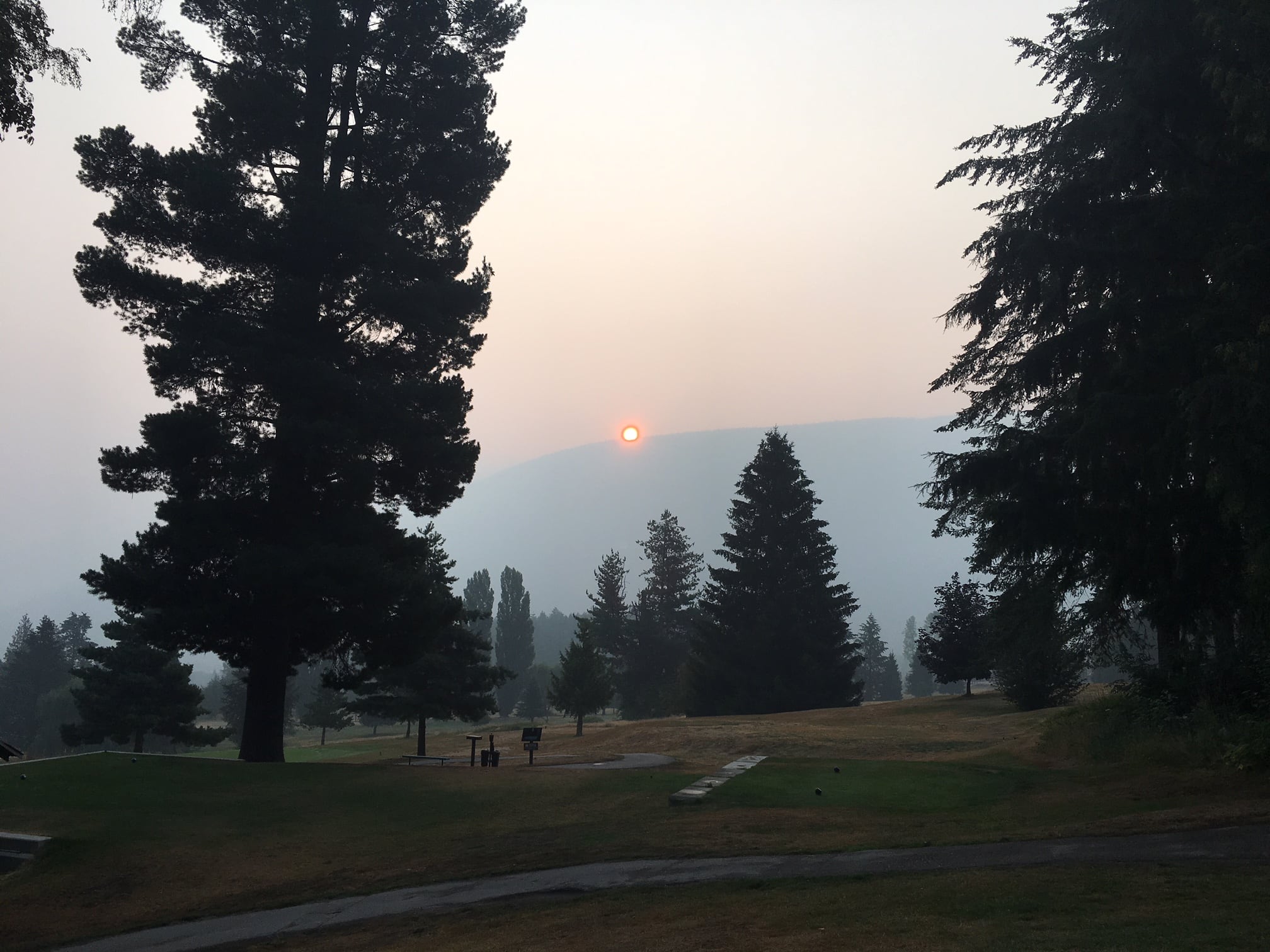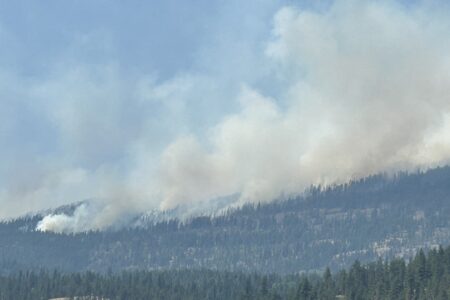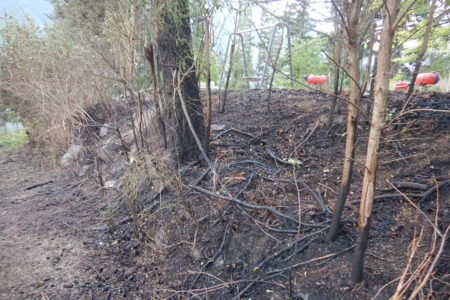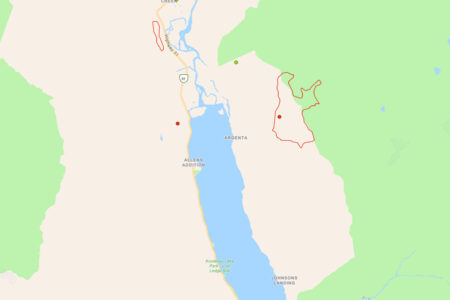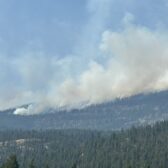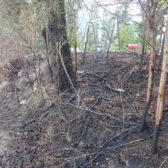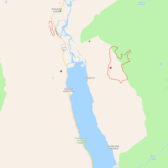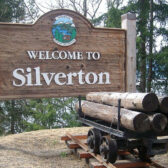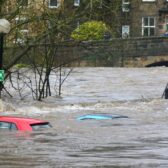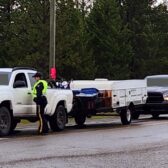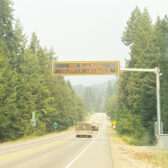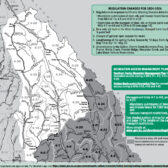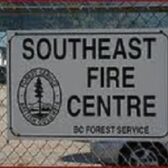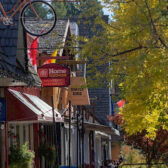UPDATED: BC, Alberta, Saskatchewan issued Special Air Quality Statement
Wildfire smoke is now raising havoc across most of Western Canada as Environment Canada has issued a Special Air Quality Statement for BC, Alberta and Saskatchewan Wednesday.
Environment Canada said during a wildfire, smoke conditions can change quickly over short distances and can vary considerably hour-by-hour.
"Wildfire smoke is a natural part of our environment but it is important to be mindful that exposure to smoke may affect your health. People with pre-existing health conditions, the elderly, infants, children and sensitive individuals are more likely to experience health effects from smoke exposure."
The bulletin can be accessed online at this link:
Smoke will continue as temperatures rise to the low 30s C through the week. A ridge of low pressure is expected to bring a chance of showers beginning Sunday and into early news week.
For general information about wildfire smoke and your health, contact HealthLink BC at 8-1-1 (toll free, 24 hours a day, 7 days a week).
Stay inside if you have breathing difficulties. Find an indoor place that's cool and ventilated. Using an air conditioner that cools and filters air may help. If you open the windows you may let in more polluted air. If your home isn't air-conditioned, consider going to a public place (library, shopping mall, recreation centre) that is air-conditioned.
Previous story: Special Air Quality Statement for most of BC
Wildfire smoke continues to impact most of BC, forcing Environment Canada to issue a Special Air Quality Statement for most areas in the province.
“During a wildfire, smoke conditions can change quickly over short distances and can vary considerably hour-by-hour,” Environment Canada said.
“Wildfire smoke is a natural part of our environment but it is important to be mindful that exposure to smoke may affect your health.”
Environment Canada said people with pre-existing health conditions, the elderly, infants, children and sensitive individuals are more likely to experience health effects from smoke exposure.
Following a cooler weekend, temperatures are expected to climb to the low 30s C or high 20sC through the week into the weekend.
For general information about wildfire smoke and your health, contact HealthLink BC at 8-1-1 (toll free, 24 hours a day, 7 days a week).
“Stay inside if you have breathing difficulties. Find an indoor place that's cool and ventilated. Using an air conditioner that cools and filters air may help. If you open the windows you may let in more polluted air. If your home isn't air-conditioned, consider going to a public place (library, shopping mall, recreation centre) that is air-conditioned.”
Environment Canada said the public should check local weather forecasts and alerts so you know when to take extra care.
To help firefighters fiight fires, the BC Wildfire Service reminds the public to stay out of active fire areas. There was a report of public interference in area where a controlled burn off operation was being conducted on the 3,788.0 hectares lightning caused Narcosli Creek wildfire near Quesnel.
"Acts such as these impact the effectiveness of fire suppression activities and pose safety risks to both public and responders working to contain these fires, particularly when air operations are impacted," BC Wildfire Service said.
"In order for wildfire suppression activities to continue safely and effectively, the public must stay out of active fire areas. The Wildfire Act and Wildfire Regulation grants government officials engaged in fire control, including firefighters, the power to order all persons to leave an area."
For more information on current air quality, see: www.bcairquality.ca. Visit www.airhealth.ca for information on how to reduce your health risk and your personal contribution to pollution levels, as well as for current and forecast AQHI values.
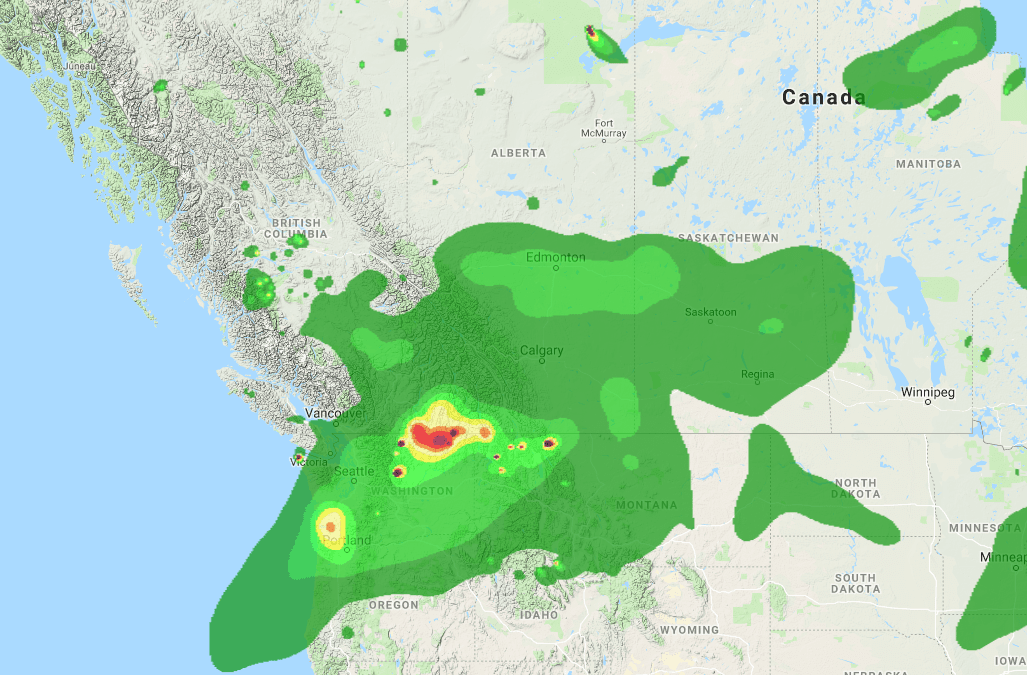
The August 15, 2018 image from FireSmoke.ca website shows most of the Pacific Northwest and BC dealing with smoke for the foreseeable future.
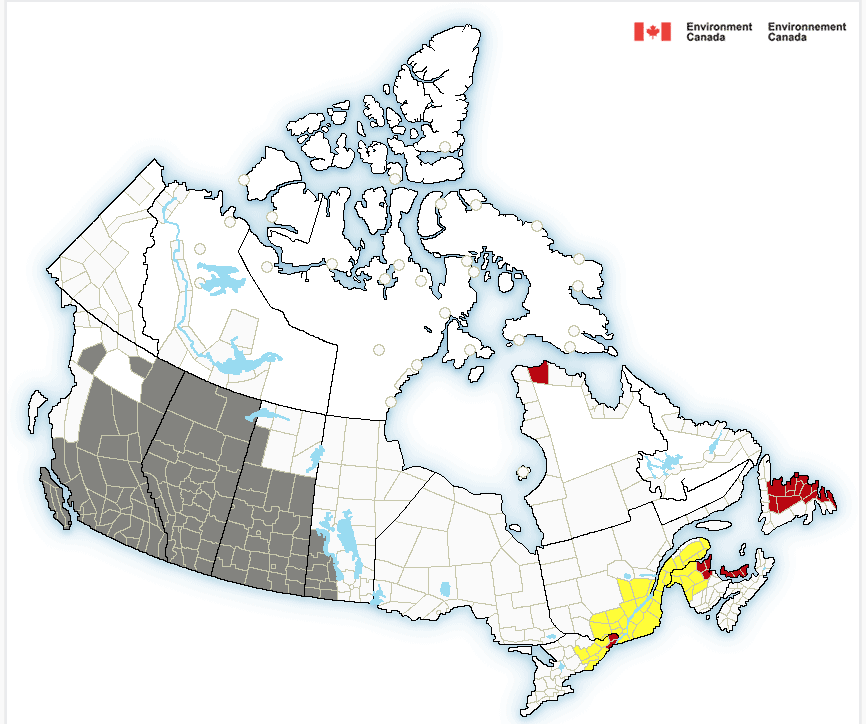
The Environment Canada weather map shows Special Air Quality Statement for most of Western Canada.



